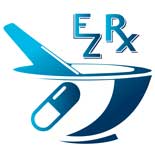- Posted On: July 22, 2019
- By: admin
- Share:
Pharmaceutical Companies Market Medications to Increase Utilization!
Pharmaceutical companies want the consumers to say yes to drugs – their drugs, and for this, they resort to a variety of marketing and advertising tactics to attract the customers to buy their products.
There are three broad categories of drug advertisements:
- Help seeking ads
- Reminder ads, and
- Product claim ads
Help-seeking commercials often have the voiceover narration that really doesn’t talk about the actual drug but instead describes the symptoms of a condition. These ads do not make any claims about the efficacy or benefits of the drug, and that’s the reason these advertisements are not regulated by the Food and Drugs Administration. This effectively means that the advertisers need to talk about the side effects of the medicine in their ads.
Reminder ads, on the other hand, cannot include information about what a drug does or how it works. It can include information on what form the drug comes in, how much it costs and how strong it is. Then there is the third category of ads known as product claim ads. These ads are required to include the generic and brand name of the drug, its FDA approved use and significant risks.
In direct-to-consumer or DTC advertising, marketers are appealing directly to the consumers, instead of the physicians. So, instead of telling the doctors that the medicine would be great for the patents, the marketers, in a way, tell the patients that the drug is great, and that they need to tell about this to the doctor. DTC advertising of drugs may be justified on the ground that it makes the patients aware of their treatment plans and as such, they feel more engaged and empowered in their healthcare.
However, the practice could drive higher prescription drug costs and overprescribing of branded products while cheaper alternatives are available. Moreover, the marketers may exaggerate treatment benefits, under-emphasize the associated risks and promote their branded drugs over lifestyle changes. Doctors too often counter DTC efforts of the pharmaceutical companies, they say that it may leave the patients misinformed and may lead to overutilization of the drug.
For many pharmaceutical companies, their spending on marketing efforts exceeds the research budget. This increases the overall cost of the medicines for the customers, which may result in decreased sales of the medication, so the overall effect of huge marketing budget could prove to be counterproductive if drug prices are not kept reasonable and competitive. Marketing practices like free samples, promoting drugs directly to physicians, detailing to hospitals and advertising directly to the users can negatively affect the patients and pharmacies as these marketing costs add up to the costing of medicine.
Drug discount drug cards like SaveonMeds prove quite useful as they help customers save money on prescriptions with no out pocket cost or sign up needed. To save the most money always request a generic medications if available. The SaveonMeds drug discount card has negotiated the best savings on generic prescriptions. By using generic medications we are lowering the overall healthcare cost. Simply download and present the SaveonMeds savings card to an in network pharmacy and you can instantly save. The pharmacy is gaining customers and increasing loyalty by being able to provide a discount on medications that are needed by the customer.
The SaveonMeds drug savings card is activated and ready to use. There is no membership fee, maximum limit or age limit. The card also covers pet medications and can be obtained by text, on email, downloaded on phone or printed. Get SaveonMeds Drug Card and start saving on your prescription drug purchases. Text keyword “SaveonMeds” to 21000 or click below to download your card.
Disclaimer: The information and content posted on this website is intended for informational purposes only and is not intended to be used as a replacement for medical advice. Always seek medical advice from a medical professional for diagnosis or treatment, including before embarking on and/or changing any prescription medication or for specific medical advice related to your medical history.
Click here to download your card



